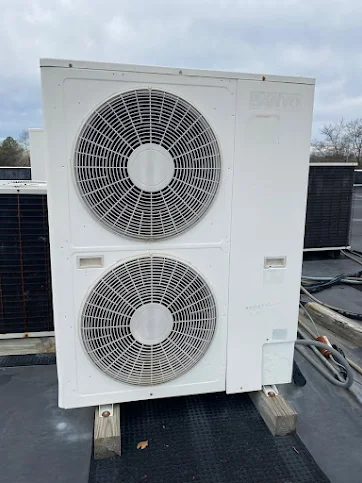The Best Seasons To Use Various Air Purifier Models
The enhanced airtightness and insulation of modern homes harm indoor air quality. According to the EPA, indoor air may even be 2–5 times dirtier than outdoor air.
Putting in an air purifier can make a big difference in the air quality in your home, whether you have asthma, allergies, or are just worried about what your family is breathing.
In this post, we'll look at three common types of air purifiers to help you understand how they work and how to use them to your advantage. They consist of the following:
- UV lamps
- HEPA air purifiers
- use polarization filters
When to use them will also be covered. This will allow your family to choose the best air purification system for your unique requirements.
UV lamps
UV (ultraviolet) light kills viruses, germs, household cleansers, passive smoking, and other harmful airborne infections.
It cleans the air like a lamp that you put inside your central air conditioning system. Once it passes through, UV radiation kills 99% of all possible germs in the air.
The terms "UV lamps" and "UV-C lights" are frequently used to describe UV lights (the "C" stands for shortwave ultraviolet light, which is the precise word). Also, they come in various sizes that must be altered to fit your HVAC system. Even though it is easy to find and buy a UV lamp online, it is best to use a trained professional who knows where to look and how to install it correctly.
When ought I to employ a UV light?
The summer is the most excellent time to use a UV air purifier. Because of the increased humidity, your home may be susceptible to mold growth. Still, the UV light in your HVAC system will eliminate mold spores before they have a chance to grow.
HEPA-Equipped Air Filtration Systems
HEPA air cleaners are often used in hospitals because they can stop the air from becoming contaminated with bacteria, viruses, smoking, pollen, dust, and other impurities.
These are high-efficiency filters that gather and accumulate airborne particles, despite being named "air cleaners." Because HEPA filters are 99.7% effective while being a little more expensive to install, they are perfect for households with people who suffer from allergies, asthma, respiratory problems, and other illnesses. Also, they could need to be replaced after up to two years of regular household use.
The best season of the year to use a HEPA filter is:
Households may benefit from a HEPA filter all year, especially in the fall and winter when the cold and flu season is at its peak and in the spring and summer when seasonal pollen can aggravate allergies.
Filters that Polarize
By applying a magnetic force to pull the particles to it, a polarized media filter can restrict the circulation of even the tiniest particles, including gases, odors, germs, bacteria, and viruses.
Simple to install inside your existing furnace, polarized media filters are a great addition to any standard carbon filter (which catches dust, hair, and grime). Swap them out a few times a year, roughly when you change your regular air filter.
Also, compared to UV lights and HEPA cleaners, they offer a more affordable option for whole-home air cleaning.
Polarized media filters are a great year-round alternative to a HEPA system. The polarized media filter is still a great option, with a lower cost and a 97% particle capture rate.
Tags
ac repair
ac repair contractors
Air Conditioner Repair
air filter
air purifiers
air quality
Furnace repair
heat pump repair
heating repair
HVAC Installation
HVAC repair
indoor air quality
UV Lights


